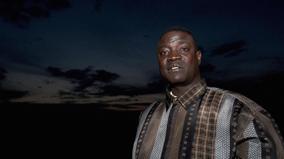New release
Coming
None
Passport to Canada
1949
11 min
Leaving soon
In the 1940s thousands of immigrants are coming from Europe to Canada offering strength and skills in exchange for hope and a new life. 'The long night is ended, the morning draws nigh,' sums up the feelings of those who are sped through immigration formalities on their way to a fresh existence. Though the language may be different, these new Canadians soon find things in Canada that remind them of Holland, Poland or Belgium. Some immigrants carry on with their old trades--sewing, farming, diamond cutting. Others, on huge projects such as Des Joachims, use their muscles to help build their …

Details
In the 1940s thousands of immigrants are coming from Europe to Canada offering strength and skills in exchange for hope and a new life. 'The long night is ended, the morning draws nigh,' sums up the feelings of those who are sped through immigration formalities on their way to a fresh existence. Though the language may be different, these new Canadians soon find things in Canada that remind them of Holland, Poland or Belgium. Some immigrants carry on with their old trades--sewing, farming, diamond cutting. Others, on huge projects such as Des Joachims, use their muscles to help build their adopted homeland, while their love of culture and their skilled professions will make valuable contributions to Canada in the future.
-
directorRoger Blais
-
producerSydney Newman
-
scriptLen Peterson
-
cameraJean-Marie CoutureNick Ball
-
soundClifford Griffin
-
editingDouglas TunstellNicholas Balla
-
narrationJohn Scott
-
musicMaurice Blackburn











